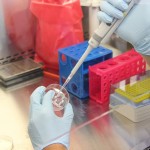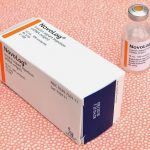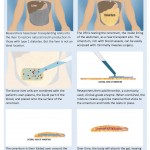Adolescents with Type 2 Diabetes Have Diminished Cognitive Performance and Brain Abnormalities
A study has found that obese adolescents with type 2 diabetes have diminished cognitive performance and subtle abnormalities in the brain as detected by Magnetic Resonance Imaging (MRI).
Early Promise for Prevention of Type 1 Diabetes
A preliminary study in a recent issue of THE LANCET suggests that injection of a specific peptide in patients with early type 1 diabetes could stop disease progression.
Recovering Insulin-Producing Cells in Diabetics May Be Possible
A new discovery may lead to the recovery of insulin-producing beta cells in people with type 1 diabetes. A Yale-led research team identified how insulin-producing...
New Insights Into The Early Development Of Diabetes
A study provides new information on the early steps in the development of IR and suggests why insulin-resistant people easily gain weight.
Cord Blood May Preserve Insulin Levels in Children with Type 1 Diabetes
Umbilical cord blood may safely preserve insulin production in children newly diagnosed with type 1 diabetes.
Exercise Alone Improves Insulin Sensitivity in Obese Sedentary Adolescents
A moderate aerobic exercise program, without weight loss, can improve insulin sensitivity in both lean and obese sedentary adolescents.
Study: Inactive Kids Face 6-Fold Risk of Heart Disease by Teen Years
Young children who lead inactive lifestyles are five-to-six times more likely to be at serious risk of heart disease, with that degree of danger emerging as early as their teenage years.
Scientists Turn Human Skin Cells Into Insulin-producing Cells
Researchers have transformed cells from human skin into cells that produce insulin, the hormone used to treat diabetes. The breakthrough may one day lead to new treatments or even a cure for the millions of people affected by the disease, researchers say.
Dietary Zinc for Diabetes Prevention Not Backed by Evidence
Despite laboratory evidence that zinc helps promote the production and action of insulin, and widespread marketing of zinc supplements for this purpose, no randomized clinical trials show that zinc supplementation prevents the onset of type 2 diabetes.
Plan to Combat Soaring Insulin Costs Proposed to Lower Costs for Diabetics
A new proposal details how insulin costs can be lowered for diabetics, and the top 3 insulin manufacturers are taking steps to make insulin less expensive.
Insulin Production Restored in Type 1 Diabetic Woman with New Treatment
A new, minimally invasive transplant technique has restored natural insulin production in a woman with Type 1 Diabetes. She is now completely off insulin...
Researchers Turn Human Embryonic Stem Cells Into Billions of Human Insulin Producing Cells
Researchers announced that they have made a giant leap forward in the quest to find a truly effective treatment for type 1 diabetes.
Oral Meds Good For Controlling Type 2 Diabetes In Children
Oral medications may control symptoms of Type II diabetes in children just as well as insulin injections, a new study reports.
Risk of Diabetes Doubled for Infants Starting Solid Food Before 4 Months Old
Infants who get their first solid food before 4 months of age and after 6 months may have a higher risk of developing Type 1 diabetes.
Study Explores Risks Of Obesity In Children With Kidney Transplants
Obese children who get kidney transplants tend to be younger, shorter and on dialysis longer than their leaner peers, according to a recent study.
Stem Cells from Adults Could Lead to New Diabetes Treatment
Researchers are capitalizing on the memories of stem cells generated from adult cells to bring new hope to sufferers of juvenile or type 1 diabetes.







